Hygrophila polysperma 'Rosanervig' en pot. Plante pour aquarium
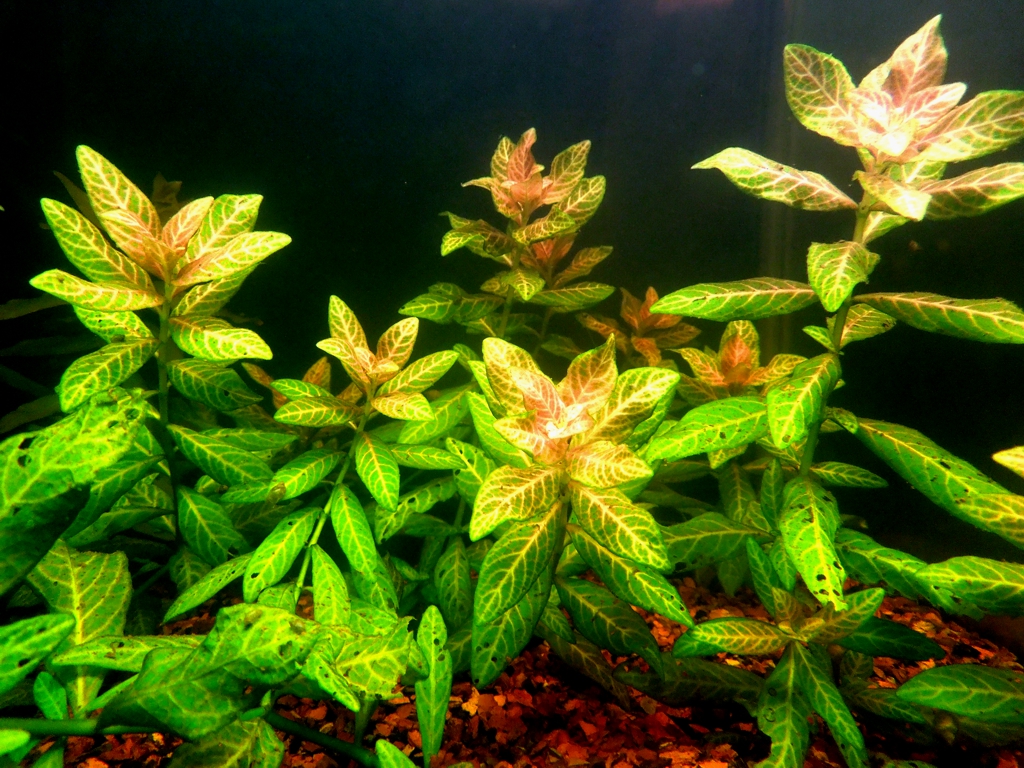
PLANT Sunset Hygrophila (Hygrophila polysperma ‘Rosanervig’) with FREE
Hygrophila polysperma 'Rosanervig': (Common name: Dwarf hygro, Indian waterweed, dwarf hygrophila) Overview: Hygrophila polysperma 'Rosanervig' is probably one the sturdiest aquatic plant available to aquarium hobbyists worldwide. Native to Asia, it is found in inland waters of China, Bangladesh and Malaysia extensively it is a great choice for.
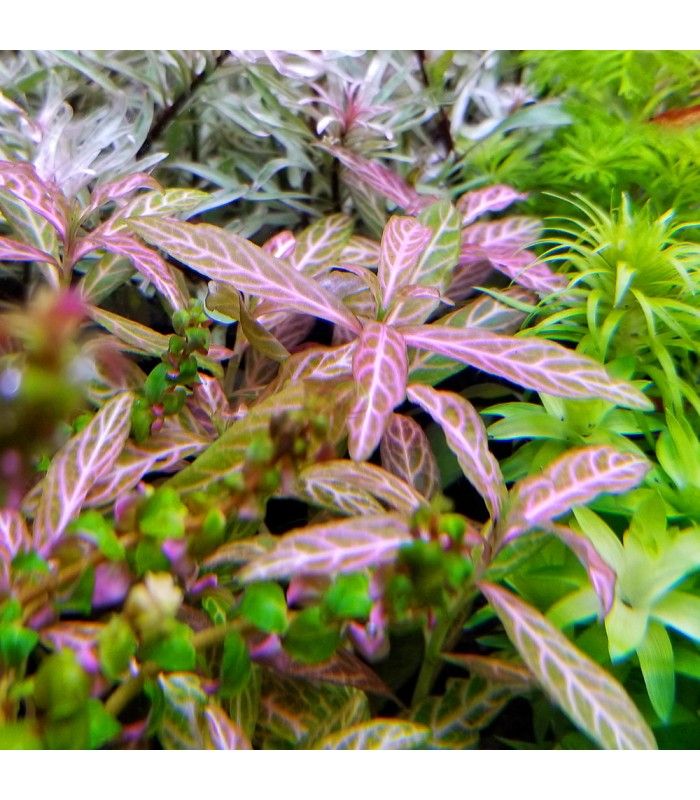
Hygrophila polysperma Rosanervig Sunset Hygrophila AquaOrinoco
Hygrophila polysperma 'Rosanervig' is normally an undemanding plant. But if you want deep-pink leaves you must provide intensive light. Stems becomes 20-40 cm tall and 5-8 cm wide. The distinctive colouring of the light leaf ribs is probably caused by a virus which prevents chlorophyll from being produced in the cells around the leaf ribs.
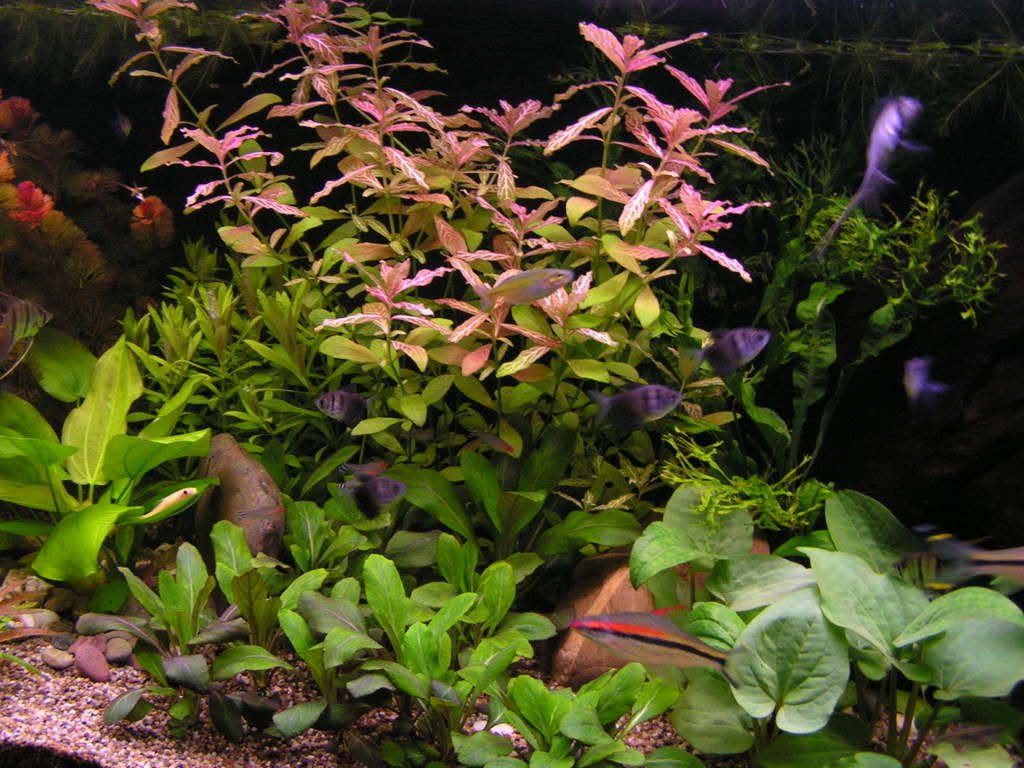
Hygrophila polysperma Rosanervig INVITAL
Hygrophila polysperma Rosanervig is an undemanding fast growing plant in any kind of water, aquarium and temperatures. They can grow up to 60 cm long and 8 cm wide. It is a hard plant and requires low or medium lighting. But depending upon the intensity of light the colour of its leaves changes from green to pink and even orange.
Aquatic Farmer Hygrophila Polysperma "Rosanervig"
Scientific Name: Hygrophila polysperma 'Rosanervig'Family Acanthaceae. Synonyms: Justicia polysperma, Ruellia polysperma, Heliadelphis polysperma. Common Names: Tropical Sunset, Sunset Hygro, Hygro Rosanervig. Region: South-east Asia. Maximum Size: 25-40 cm although can probably grow to the top of most tanks. Will grow plantlets of leaves.
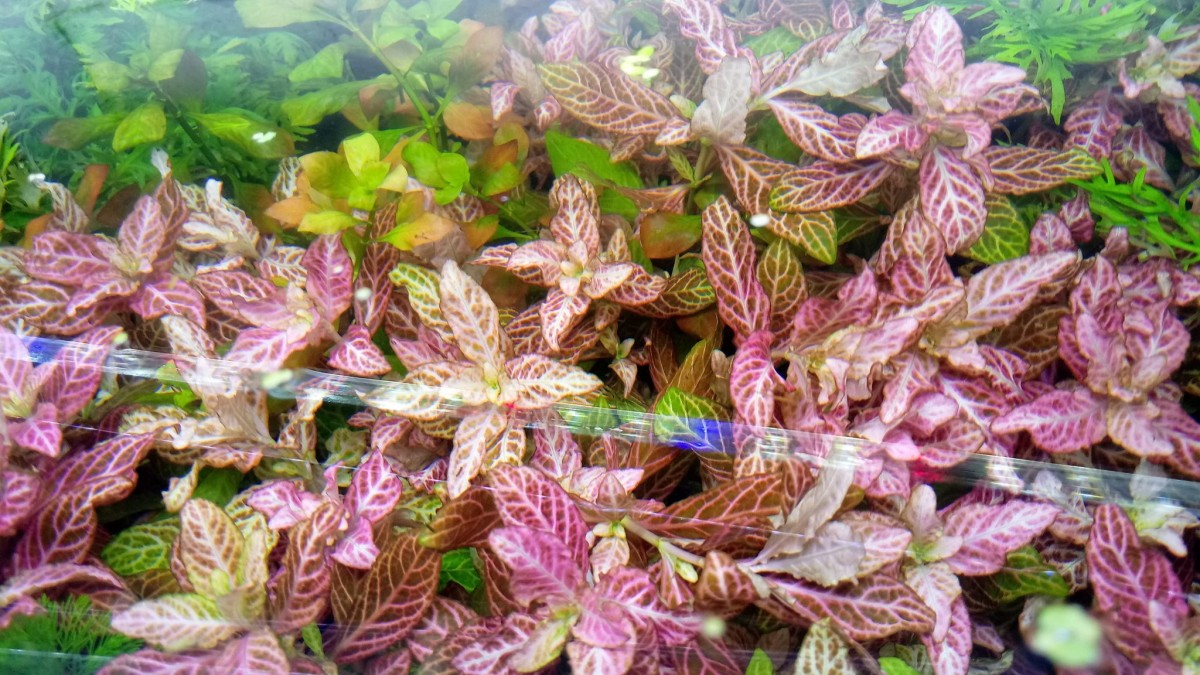
Hygrophila Polysperma ROSANERVIG
Hygrophila Polysperma var. Rosanervig. Hygrophila polysperma requires medium-high lighting levels (30-50 PAR or 70-100 Lumens). Additionally, maintain a standard photoperiod of 10-12 hours daily. This is a very light-demanding plant. Strong lighting will provide the best growth. In addition, the top leaves will turn pinkish or reddish under.

Hygrophila polysperma "Rosanervig" Plantas, Aquário
Hygrophila Polysperma or Dwarf Hygro, as it's more commonly known, needs very little extra care other than suitable water conditions and aquarium lighting. CO2 is not required for this plant to successfully grow. In fact, CO2 could be far too much for this species which will result in excessive growth. This will require constant trimming.

PLANT Sunset Hygrophila (Hygrophila polysperma ‘Rosanervig’) with FREE
Green Hygro - Hygrophila polysperma; Sunset Hygro - Hygrophila polysperma 'Rosanervig' Ceylon Hygro - Hygrophila polysperma 'Ceylon' Origin South East Asia Environment Specifics Fast growing plant, perfect for beginners with basic tank lighting. This plant has become a common invasive weed in waters in Florida.

HYGROPHILA POLYSPERMA ROSANERVIG (SUNSET HYGRO)
Hygrophila polysperma 'Rosanervig' is normally an undemanding plant. It may suddenly develop shoots that are entirely green. Remove these to keep the distinctive pink, marbled leaves. If you want deep-pink leaves, you must provide intensive light. Stems becomes 20-40 cm tall and 5-8 cm wide.

Hygrophila polysperma 'Rosanervig' Aquasabi Aquaristik Shop
Hygrophila polysperma from South-East Asia is one of the hardiest aquarium plants available. Stems becomes 25-40 cm and 4-8 cm wide. It is particularly good for beginners because it grows in almost all conditions. It normally grows so fast that it is important to prevent it crowding out other plants. The shoots must be pinched out regularly.
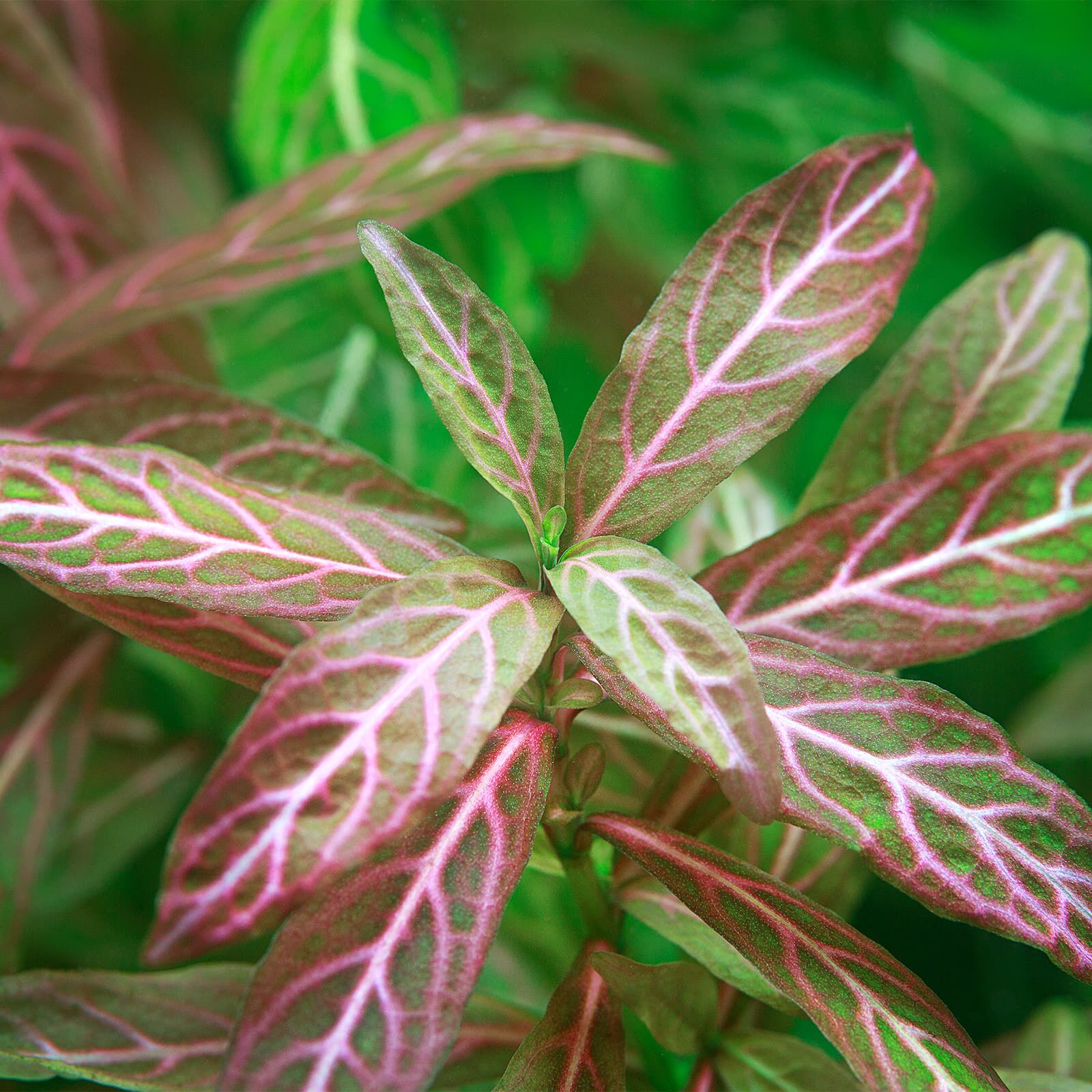
Hygrophila polysperma 'Rosanervig' Aquasabi Aquascaping Shop
Quick Stats Minimum Tank Size: 10 Gallons (37 Litres) Care Level: Very Easy Water Conditions: 5-8 pH and Soft to Moderately Hard Temperature: 64-86 °F (18-30 °C) Maximum Size: 24 inches (60 cm) Hygrophila polysperma, also known as dwarf hygro, Indian waterweed and dwarf hygrophila is one of the hardiest aquarium plants available in the […]

Hygrophila polysperma 'Rosanervig' Aquasabi Aquascaping Shop
Hygrophila polysperma 'Rosanervig' Scientific name: Hygrophila polysperma 'Rosanervig' Family: Acanthaceae. Usual maximum size in aquariums: 20 - 50 cm (7.87 - 19.69 inch) 0 14. Recommended pH range for the species: 6.1 - 7.7. Recommended water hardness (dGH): 5 - 18°N (89.29 - 321.43ppm) 0°C 32°F 30°C 86°F
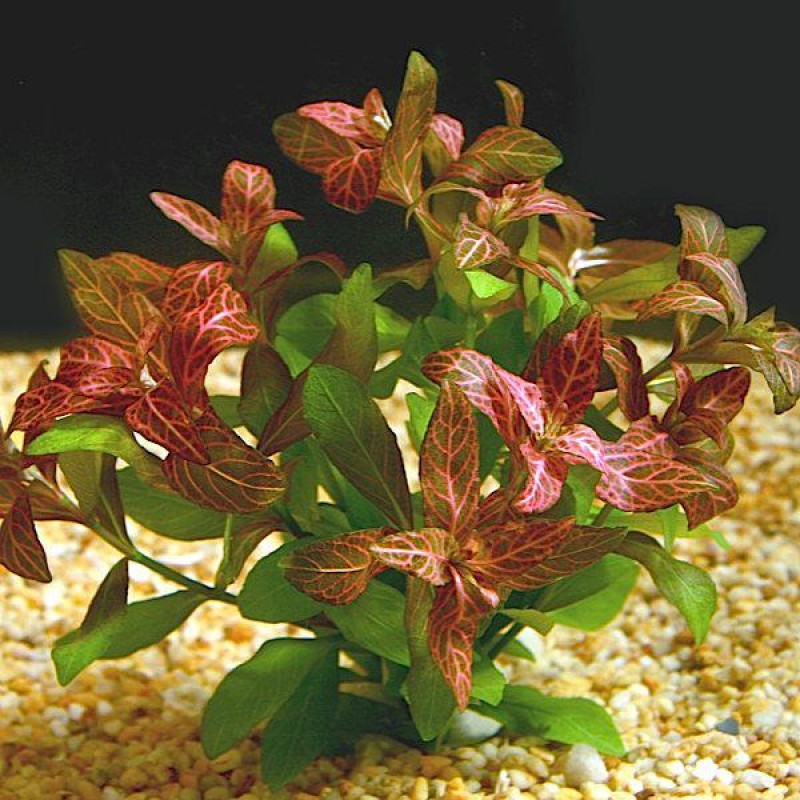
Hygrophila polysperma 'Rosanervig'
Ayman Roshdy The Aquarist. The aquarist is where you can find everything about aquariums, fresh water fish, marine fish and much more, this includes: - General aquarium tips and tricks - Aquarium tanks - Aquarium plants - Aquariums maintenance - Aquascape and decorations - Coral reefs - Fish data sheets - Aquariums devices and gadgets - Drift wood - Fish feeding and breeding - Fish health.
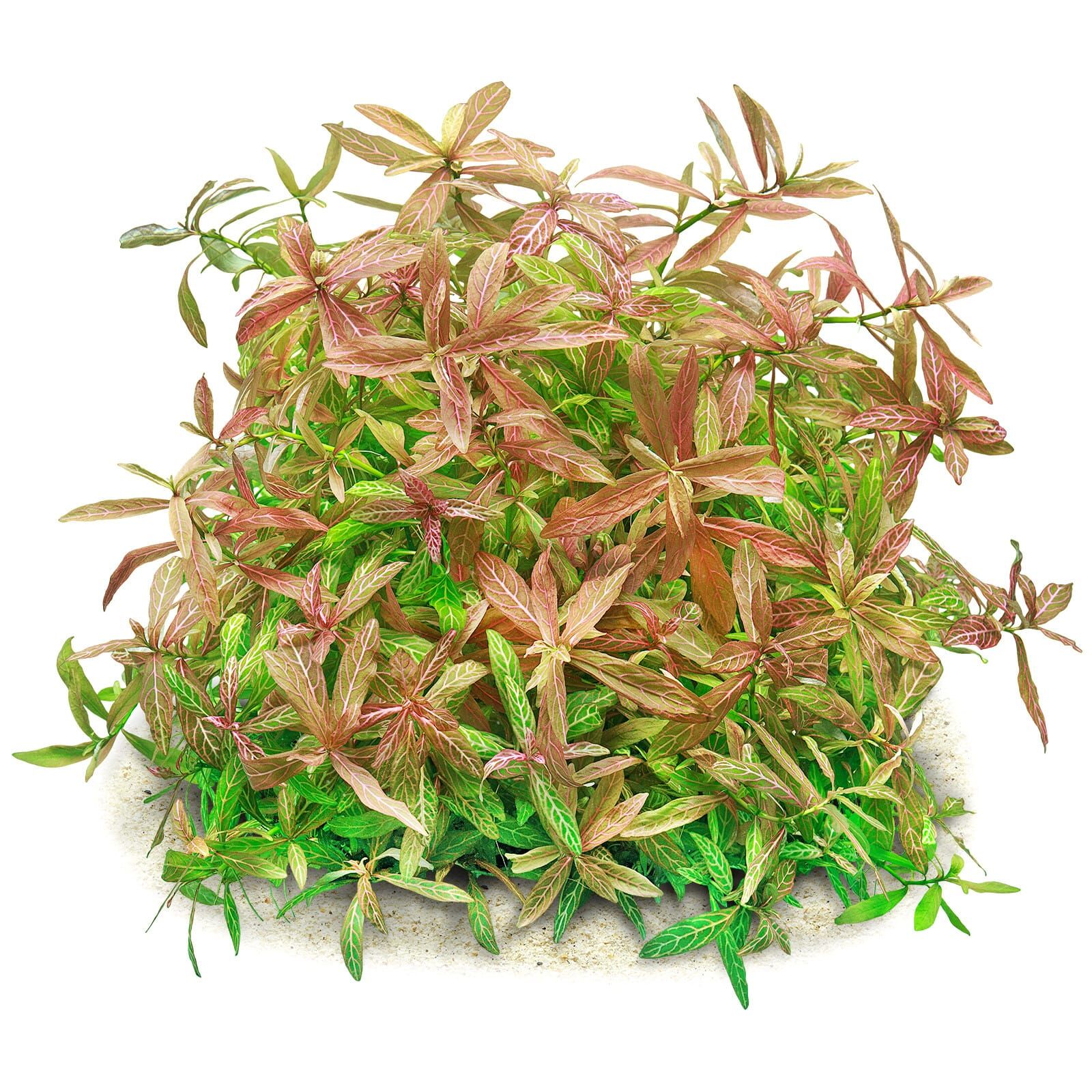
Hygrophila polysperma 'Rosanervig' Aquasabi Aquascaping Shop
Hygrophila polysperma 'Rosanervig' - Tropica Potted Plant Hygrophila polysperma 'Rosanervig' is normally an undemanding plant. It may suddenly develop shoots that are entirely green. Remove these to keep the distinctive pink, marbled leaves. If you want deep-pink leaves, you must provide intensive light. Stems becomes 20-40 cm tall and 5-8 cm wide. The distinctive colouring of the.

Hygrophila Polysperma 'Rosanervig' Online Aquarium plants UK
Description: Hygrophila polysperma "Rosanervig" is a captivating variation of the classic Water Wisteria, known for its vibrant and distinctive coloration. This aquatic plant, a member of the Acanthaceae family, originates from Southeast Asia. Its name "Rosanervig" refers to the pink veins that adorn its leaves, adding a delightful touch of color to freshwater aquariums.

ᐉ Hygrophila Polysperma Rosanervig 🌱 Plantas de Acuario
Hygrophila Polysperma "Rosanervig"Hygrophila Polysperma "Rosanervig" - This plant with bright pink leaves grows fast in bright light.

Hygrophila polysperma Rosanervig Sunset Hygrophila AquaOrinoco
Hygrophila polysperma 'Rosanervig' (Rose Hygrophila, Pink Hygrophila, Marble Hygrophila) Invasive species warning: The species from which this cultivar was bred is a known invasive pest in the Great Lakes region where it may be regulated or prohibited by U.S. state and federal statutes. It is also restricted in several other states such as Kansas and South Carolina.